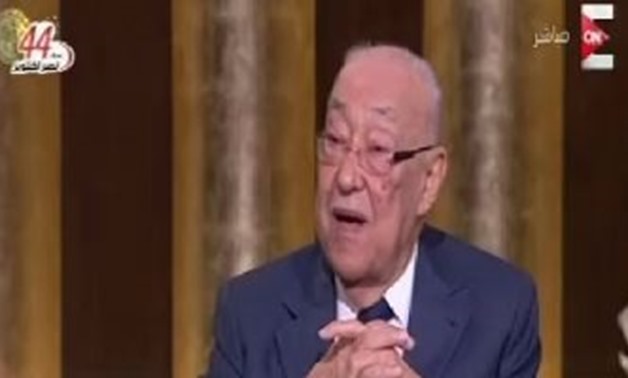
Fouad Allam - File Photo
CAIRO – 2 November 2017: The state is capable of confronting terrorism and has moved to the stage of aborting terror schemes and directing preemptive strikes, stated Fouad Allam, member of the National Council for Counterterrorism, to Egypt Today in an exclusive interview Thursday.
“The Giza-Wahat incident will not happen again,” Allam reaffirmed.
The full interview is included below.
At first, how do you perceive the terrorist Giza-Wahat incident?
The Giza-Wahat incident confirms that terrorist elements are highly trained and that there are states that support them to shake the stability of other states, but still, Egypt will continue to have the upper hand and fight these terrorist organizations.
Does that mean that there are countries that support terrorism?
Certainly there are states that support terrorist organizations and whose purpose is clearly to divide Arab countries into small states, to be organized by terrorist organizations, and to become incapable of confronting the real enemy, which is Israel. So, I affirm that terrorism is an international blueprint supported by some states to destabilize the Arab region, namely Egypt.
How did you perceive the Giza-Wahat martyrs’ vengeance?
It is a preemptive strike and a qualitative one. It’s also a solid victory for the Egyptian state and a reaffirmation of the state’s power, but we must assert that the combined efforts of the state’s security agencies have achieved this victory and that it has a shield and sword that protects it.
Does this mean that the state has launched a direct preemptive strike against terrorists before they have had the chance to carry out other operations?
Today, the state has shifted from the fight against terrorism to a state that is working to abort terrorist operations before they are carried out and this is what happened in the Armed Forces’ and police’s preemptive and well-calculated strike.
Does this confirm that the information agencies in Egypt have become more active and powerful than before?
Indeed it does, information agencies in Egypt are in constant development and the great speed with which accurate information about terrorist cells in the oasis was accessed is proof. The speed with which Captain Mohamed al-Haies was retrieved and liberated is also proof. This is powerful proof that the country is strong and that its information authorities are capable of accessing the most accurate information and details that are clear to all of us now.
From your point of view, where do terrorist elements come from?
These terrorist elements come from training camps in which they have been trained in Syria, Libya and Iraq. These elements were trained there to carry out terrorist operations, carry weapons and manufacture explosives.
Does this indicate the threat that Egyptians who are returning from these countries specifically pose?
Yes it does, it is a great danger that the state must address vigorously by developing strategies and plans to confront them and proactively strike them. This is in addition to the need to gather full information about them in order to confront them because their return represents a danger to Egyptian national security and this issue must be addressed. The entry procedures need to be scrutinized especially when it comes to the elements arriving from Syria and Libya to prevent the incursion of terrorists in their midst.
Do you think force is the only solution against terrorism?
No, force is certainly not the only solution. There’s a need to act against extremist ideas through which young people are attracted. A forecast must be put in place to confront these ideas beside security solutions. Here, all state institutions must be involved in confronting these extremist ideas through which terrorist organizations arise. I affirm that this is role of all state institutions and not just security institutions.
Finally, how do you perceive the return of Captain Mohamed Al-Haies?
It is a successful tactical security operation by all means and a success for the military and police forces. Captain Mohamed al-Haies will talk about what happened in the Oasis process, when his health improves. This information will be important as it pertains to terrorist groups and their concentration in these areas, and security services will benefit from these insights in the fight against terrorism. It will enable security services to better understand how terrorist elements think and plan on ground.
The Armed Forces released a video on Wednesday, in which it broadcasted scenes of the military operation launched against the terrorists behind the October 20 attack, and announcing the termination of the remaining terrorists.
On Tuesday, a retaliation attack conjointly carried out by the police and the armed forces managed to eliminate terrorists embroiled in the Giza-Wahat shoot-out that left 17 officers killed and led to the death of 15 militants, according to the Interior Ministry.
As part of the military operation bucked at terrorists, Mohammed Al-Haies, who was believed to be taken as a hostage at the hand s of militants, was freed and transferred to a military hospital where he is currently receiving the necessary medical treatment.

Comments
Leave a Comment